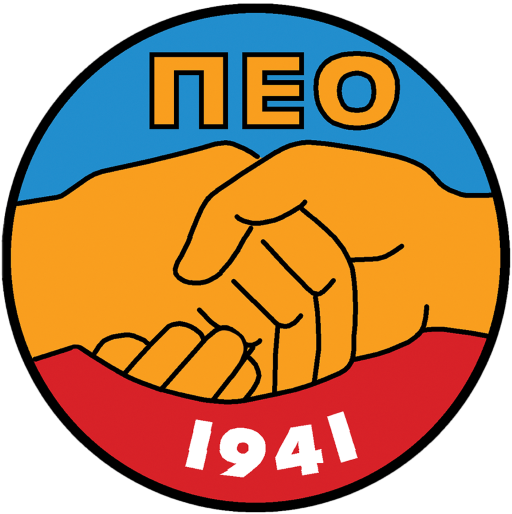The assertive role of the PEO
Sunday 9 January 2022, ‘Haravgi’ newspaper
Article by Spyros Sotiriou, member of the General Council of the Pancyprian Federation of Labout (PEO), Responsible for the PEO Communications Office
In recent years, certain circles are attempting to denigrate and vilify the trade union movement and the Pancyprian Federation of Labour (PEO) in particular, which historically is the most assertive and militant trade union organisation in our country. This perception is being cultivated deceitfully that working people shouldn’t get organised in trade unions because they supposedly have nothing to gain and trade unions have any reason to exist anymore.
This is an erroneous perception that in reality helps employers and the defenders of the “unfettered, free market” with its unregulated and flexible forms of employment and a weaker trade union movement. Unfortunately, some – from an ultra-left critique – also indirectly support this narrative who, with their criticism, also end up denigrating and vilifying by claiming that PEO has supposedly lost its assertive character.
What is the reality? Is PEO fulfilling its historic role or not? Is it or is it not continuing to stand on the side of working people and assert with the same intensity and frequency?
Summarising the activities of PEO over the last four years between the 27th and the 28th Congress which was held just a few days ago, the facts point to concrete conclusions.
According to the real figures, from 2017 to date PEO has been at the forefront of over 130 strikes involving more than 45,000 workers. Considering that we have had continuous lockdowns and restrictive measures were applied over the last two years, the number of these strikes is quite high.
Over the past four years we have had strikes in bus companies, ports, local government, hospitals, public institutions, strikes and protests organised with the participation of thousands of teachers against the Ministry of Education’s programmes and strikes in numerous individual enterprises. I should make it clear that strikes are not an end in themselves, nor are they indeed the only criterion that prove the struggles that were waged by PEO.
During these four years the class-based trade union movement has achieved, among other things, the guarantee of minimum rights in the building and hotel sectors through the approval of legislation and renewal of collective agreements in the two biggest sectors employing working people. These gains were not achieved by citing prayers and any wishful thinking. It was the result of a sustained struggle that was successfully waged for the benefit of working people. It was preceded by strikes, mass mobilisations and tough negotiations.
At the same time, collective agreements have been renewed in many other workplaces over the last four years, and strikes were organised to protect workers’ rights even during the period of the lockdown.
At the same time, there are ongoing negotiations for the renewal of collective agreements, for example, for port workers, while other sectors of workers are engaged in an ongoing struggle like, for example, the teachers in the evening and evening programmes of the Ministry of Education.
From there onwards, PEO has left its stamp also on a number of other major demands and actions.
I’ll just recall briefly the following: the preservation of the custom of the Automatic Cost of Living Allowance (COLA), the National Health Scheme, mobilisations for equality and against violence against women, against racism, mobilisations for pensioner’s rights and against the 12% penalty charge on those working people choosing to retire at 63, mobilisations to express internationalist solidarity with struggling peoples, the organisation of bicommunal actions to support the solution of the Cyprus problem, practical support for refugees and those in need through the People’s Social Solidarity Network, the establishment of the ‘Social Platform’ movement on the housing problem, mobilisations and actions to promote safety and health at work and many more.
Evidence of the above demonstrates that all these actions are not empty talk and clearly show that PEO is on a continuous path of struggle and assertion, with substance, to the benefit of working people.
It is no coincidence that the employers’ organisations are now reiterating the demand for the “regulation” (prohibition) of strikes. If they were not afraid of the trade union movement’s actions, they wouldn’t be bringing back this specific demand.
In conclusion, we are not recalling PEO’s struggles in order to pat ourselves on the back, nor is it done to sweep any mistakes committed and weaknesses under the carpet. These figures also reply both to well-intentioned criticism and criticism exercised in bad faith, but unfounded that PEO has supposedly lost its fighting spirit and its assertive character.
